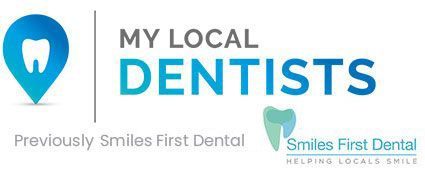Types and Causes of Teeth Cavities

When plaque is not entirely removed from an impeccable oral care routine, you are more likely to develop tooth cavities.
Cavities are a common dental concern, and only through daily brushing and flossing can they be prevented easily.
Teeth Cavities Risk Factors
Certain factors can increase your probability of developing teeth cavities.
The leading risk factor is not doing your oral hygiene routine appropriately.
However, the following sources are the primary culprits for tooth cavity manifestation.
Sweet and Starchy Foods
Starchy foods are more likely to cause cavities than non-sticky ones. Candy and soft foods such as milk, honey, hard candies, raisins, bread and dry cereals feed the germs in the mouth.
Many of these bacteria feed on sweets, which causes them to generate acids that erode tooth enamel and cause cavities.
Reduce the quantity of sweet beverages by avoiding them and instead taking fresh fruits and vegetables with a chewing action that will clean your teeth.
Recurrent Snacking
Although some diets allow the frequent consumption of snack foods, it is not healthy to consume snacks without proper dental care.
The food residues and sugars that remain in the mouth any time one takes food cause acid production inside the mouth.
Eating often means exposing your teeth to these acids, slowly fraying off your enamel.
If you are required to consume some foods between meals, select foods with comparatively low chances of being deposited in your teeth and drink water to rinse the mouth and counteract the effects of the acids.
Receding Gums
Over time, your gums may shrink, thereby demasking the roots of your teeth. The roots are more susceptible to decay since they lack enamel, the outer protective layer of your teeth.
Tartar deposits along the gum line can easily lead to root caries that are more difficult to manage.
If you see symptoms of your gums pulling back, including enhanced teeth sensitivity or the aspect of your teeth extending more than usual, it’s high time to see your Northmead dentist.
Dry Mouth
Saliva is helpful for your teeth as it washes the food particles and counteracts the secretion of acids from bacteria.
If you have a dry mouth caused by medicine, insufficient fluid intake, or some health problem, you will likely get cavities in your teeth.
Staying hydrated, chewing sugar-free gum, or using a saliva substitute can help manage dry mouth and protect your teeth from decay.
Three types of Teeth Cavities
Not all teeth cavities are similar. Through examination, your dentist can determine what kind of cavity you have. Using X-rays, your dentist will also confirm the sections of decay.
1. Root Cavity
It is the most common type of tooth cavity among older adults who may have receding gums.
Root cavity happens on the roots’ surface of the teeth, which lack the protective enamel covering.
Because the roots are more vulnerable to decay, root cavities can progress quickly and require prompt treatment to prevent tooth loss.
Brushing gently along the gumline and using fluoride toothpaste can help protect these areas.
2. Pit and Fissure Cavity
This cavity develops on the outer surface of the grinding surfaces of the back teeth. Regular brushing can help prevent pit and fissure caries.
On the contrary, it can become severe if you do not practise oral hygiene regularly.
Applying sealants to the molars is possible, and they will act as a protective shield, particularly in children or teenagers who find it challenging to clean their back teeth well.
3. Smooth-surface Cavity
When plaque isn’t effectively removed, smooth surface cavities form on the teeth’ flat surface.
This type of decay is the least aggressive and usually responds well to treatment, such as fluoride.
Finally, removing food particles and using good brushing strategies can help avoid the formation of smooth surface cavities.
Dentists can arrest the decay process in its initial stages before it reaches the tooth’s deeper surface.
Preventing Teeth Cavities in Northmead
Cleaning your teeth should be your top priority if you develop tooth cavities.
Consult your Northmead dentist today to effectively prevent and treat cavities and other dental problems.
At My Local Dentists, we provide superior professional cleaning to recognise problems before they can damage oral health.
Book online or call (02) 9630 9996.
Visit us at 19/5-7 Kleins Rd in Northmead.
